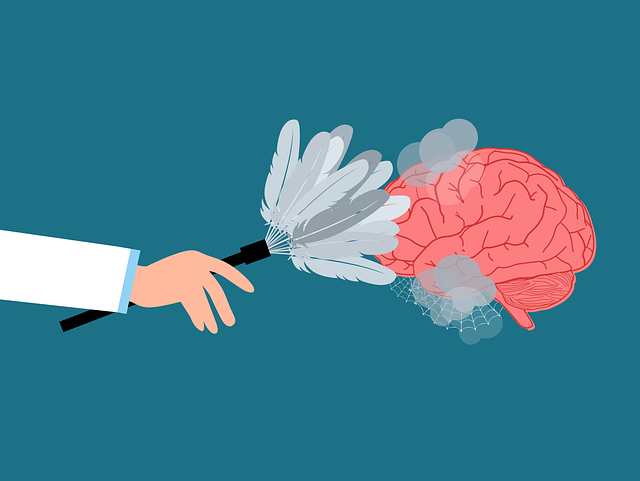Civil commitment balances public safety with individual freedom by providing a legal framework for hospitals to hold patients with severe mental disorders. Understanding this process involves knowing regional variations in legal standards and procedures, which require court orders based on evidence of mental illness. Both healthcare providers and individuals facing commitment must comprehend their rights in mental health cases to ensure fairness and appropriate treatment. The initial step involves assessing the individual's condition and determining if they meet involuntary commitment criteria. Hearings are held where both parties can present evidence, after which the court makes a decision. Experts like psychiatrists and psychologists play crucial roles, followed by specialized post-commitment care services to support recovery and community reintegration.
“In navigating civil commitment proceedings, expertise is paramount when dealing with mental health crises. This comprehensive guide delves into the intricate legal framework surrounding civil commitment, highlighting the crucial rights of individuals in such situations. We explore the steps involved in these proceedings and emphasize the vital role of experts and lawyers in ensuring fairness.
Furthermore, we provide insights into post-commitment support and recovery resources, underscoring the importance of continued care for those facing mental health challenges.”
- Understanding Civil Commitment: A Legal Framework for Mental Health Cases
- The Rights of Individuals in Mental Health Crisis: What You Need to Know
- Navigating the Legal Process: Steps Involved in Civil Commitment Proceedings
- Role of Experts and Lawyers in Ensuring Fair Treatment During Commitments
- Post-Commitment Support and Recovery: Resources for Continued Care
Understanding Civil Commitment: A Legal Framework for Mental Health Cases

Civil commitment is a legal process designed to balance public safety with an individual’s right to freedom and treatment for their mental health condition. It provides a framework for hospitals and facilities to hold individuals who pose a danger to themselves or others, while ensuring they receive necessary care and support. This process is particularly crucial in mental health cases, where the intersection of legal rights and healthcare can be complex.
Understanding civil commitment involves grasping the specific legal standards and procedures that govern when and how an individual can be involuntarily committed. These standards vary by jurisdiction but typically require a court order based on evidence that the person suffers from a severe mental disorder and poses a substantial risk of harm to themselves or others if not confined. It’s essential for both healthcare providers and individuals facing such proceedings to comprehend these rights in mental health cases, ensuring fairness and appropriate care throughout the process.
The Rights of Individuals in Mental Health Crisis: What You Need to Know

In a mental health crisis, individuals face unique challenges and it’s crucial to understand their rights throughout the process. Civil commitment proceedings aim to provide support and treatment for those in need, but it’s essential that the rights of the individuals involved are upheld. Everyone has the right to be treated with dignity and respect, and to be informed about the nature of the proceedings and their options. They can refuse treatment, communicate with attorneys and family, and participate in decisions regarding their care.
Knowing these rights empowers individuals and their loved ones to navigate civil commitment proceedings more effectively. It’s important for those involved to stay informed, exercise their rights, and seek legal counsel if needed. Understanding the process and knowing what they are entitled to can make a significant difference during this challenging time.
Navigating the Legal Process: Steps Involved in Civil Commitment Proceedings

Navigating civil commitment proceedings requires a deep understanding of the legal process and the rights in mental health cases. The first step involves assessing the individual’s condition and determining whether they meet the criteria for involuntary commitment, which is typically based on a significant risk to themselves or others. This includes a thorough evaluation by qualified healthcare professionals who will document the individual’s symptoms, history, and potential risks.
Once the assessment is complete, a petition for civil commitment is filed with the court. The next phase involves a series of hearings where both the patient and their representatives have the right to present evidence and argue against the commitment. The court then considers all information presented before making a decision. If committed, the individual will be placed in a treatment facility, where they can receive specialized care while their condition is monitored and assessed for improvement or discharge.
Role of Experts and Lawyers in Ensuring Fair Treatment During Commitments

In civil commitment proceedings, the role of experts and lawyers is pivotal in safeguarding the rights of individuals in mental health cases. Experts, often including psychiatrists and psychologists, play a crucial part by providing impartial assessments and testimony about an individual’s mental state. Their insights help courts make informed decisions, ensuring that commitments are based on sound evidence and not arbitrary judgments. Lawyers, too, have a significant role in protecting the rights of their clients. They guide individuals through complex legal processes, ensuring they understand their options and potential outcomes.
Lawyers also advocate for their clients’ interests, challenging any procedural irregularities or unfair practices. By combining expert medical knowledge with legal acumen, these professionals foster a balanced approach to civil commitment, preserving the rights and dignity of those facing such proceedings while maintaining public safety.
Post-Commitment Support and Recovery: Resources for Continued Care

After a successful civil commitment, ensuring ongoing support and effective recovery is paramount for individuals with severe mental health conditions. This phase is crucial as it facilitates a smooth transition from controlled settings to community reintegration. Specialized services designed for post-commitment care play a pivotal role in empowering individuals to manage their symptoms, maintain stability, and regain control over their lives. These resources often include access to therapy, medication management, support groups, and case management services tailored to the unique needs of those with psychiatric disorders.
Utilizing available post-commitment support networks is essential for upholding the rights of individuals in mental health cases. Such care enables them to develop coping strategies, rebuild relationships, and secure sustainable housing. Moreover, it helps bridge the gap between controlled environments and everyday life, fostering a sense of belonging and self-sufficiency. Ultimately, these comprehensive services contribute to improved outcomes, reduced relapse rates, and enhanced overall well-being for those navigating civil commitment proceedings.






